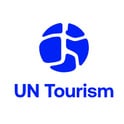New Guidelines Put Women’s Empowerment at Heart of Tourism’s Restart
A new set of guidelines will help both governments and businesses better address the needs of women in the tourism sector.
The guidelines published by the World Tourism Organization (UNWTO) were developed with the support of the German Federal Ministry for Economic Development (BMZ), the Deutsche Gesellschaft für Internationale Zusammenarbeit (GIZ) GmbH and UN Women. They aim to ensure an inclusive and resilient recovery from the impacts of the pandemic. They recognize that, given the disproportionate loss of employment suffered by women, as well as the high proportion of women workers within tourism and their concentration in lower-skilled and lower-paid jobs, plans for the sector’s restart and recovery must address their specific needs.
Tourism has proven itself a true champion of gender equality and these new guidelines will help both governments and businesses harness the sector’s power as a driver of women’s empowerment as the world opens up again
Tourism as a driver of equality
UNWTO Secretary General Zurab Pololikashvili says: “The restart of tourism must include everyone and the benefits must be enjoyed by all. Tourism has proven itself a true champion of gender equality and these new guidelines will help both governments and businesses harness the sector’s power as a driver of women’s empowerment as the world opens up again”.
The guidelines for the public sector provide specific tools to support national, regional, local and other tourism institutions, focusing on policies, programmes and thematic issues in the tourism sector. Meanwhile, the strategy for businesses is intended to support tourism enterprises of all types and sizes to achieve effective and consistent strategies and programmes for gender equality across their operations.
Tourism steps up commitment to women
The recently published gender mainstreaming guidelines continue UNWTO’s work on women’s empowerment and are in line with a growing trend within tourism to address gender inequalities. The guidelines stand alongside a growing number of similar initiatives such as the Women’s Empowerment Principles (WEP’s) or the Environmental, Social and Governance (ESG) Reporting scheme.
Moreover, these guidelines provide concrete recommendations for governments working to achieve the Sustainable Development Goals (particularly Goal 5 – Gender Equality and Women’s Empowerment) and the objectives of international women’s rights treaties such as ILO Conventions 100, 111, 156, 183 and 190 or the Convention on the Elimination of all Forms of Discrimination Against Women (CEDAW).
Launch Webinar
UNWTO invites all interested stakeholders to join a special webinar (March 16, 15:00 CET), presenting both guidelines with key speakers from the sector. The event will explain what exactly gender mainstreaming is and why it is important in tourism, particularly for the public and private sectors. The webinar will be streamed live the UNWTO YouTube channel.
LINKS TO GUIDELINES
- Gender Mainstreaming Guidelines for the Public Sector in Tourism
- Gender Inclusive Strategy for Tourism Businesses
RELATED LINKS
- Center Stage
- Action Plan for Tourism Businesses to Integrate Gender Equality
- UNWTO: Women’s Empowerment and Tourism
- Global Report on Women in Tourism, Second Edition
About UN Tourism
The World Tourism Organization (UN Tourism) is the United Nations agency responsible for the promotion of responsible, sustainable and universally accessible tourism.
As the leading international organization in the field of tourism, UN Tourism promotes tourism as a driver of economic growth, inclusive development and environmental sustainability and offers leadership and support to the sector in advancing knowledge and tourism policies worldwide.
Our Priorities
Mainstreaming tourism in the global agenda: Advocating the value of tourism as a driver of socio-economic growth and development, its inclusion as a priority in national and international policies and the need to create a level playing field for the sector to develop and prosper.
Promoting sustainable tourism development: Supporting sustainable tourism policies and practices: policies which make optimal use of environmental resources, respect the socio-cultural authenticity of host communities and provide socio-economic benefits for all.
Fostering knowledge, education and capacity building: Supporting countries to assess and address their needs in education and training, as well as providing networks for knowledge creation and exchange.
Improving tourism competitiveness: Improving UN Tourism Members' competitiveness through knowledge creation and exchange, human resources development and the promotion of excellence in areas such as policy planning, statistics and market trends, sustainable tourism development, marketing and promotion, product development and risk and crisis management.
Advancing tourism's contribution to poverty reduction and development: Maximizing the contribution of tourism to poverty reduction and achieving the SDGs by making tourism work as a tool for development and promoting the inclusion of tourism in the development agenda.
Building partnerships: Engaging with the private sector, regional and local tourism organizations, academia and research institutions, civil society and the UN system to build a more sustainable, responsible and competitive tourism sector.
Our Structure
Members: An intergovernmental organization, UN Tourism has 160 Member States, 6 Associate Members, 2 Observers and over 500 Affiliate Members.
Organs: The General Assembly is the supreme organ of the Organization. The Executive Council take all measures, in consultation with the Secretary-General, for the implementation of the decisions and recommendations of the General Assembly and reports to the Assembly.
Secretariat: UN Tourism headquarters are based in Madrid, Spain. The Secretariat is led by the Secretary-General and organized into departments covering issues such as sustainability, education, tourism trends and marketing, sustainable development, statistics and the Tourism Satellite Account (TSA), destination management, ethics and risk and crisis management. The Technical Cooperation and Silk Road Department carries out development projects in over 100 countries worldwide, while the Regional Departments for Africa, the Americas, Asia and the Pacific, Europe and the Middle East serve as the link between UN Tourism and its 160 Member States. The Affiliate Members Department represents UN Tourism's 500 plus Affiliate members.
